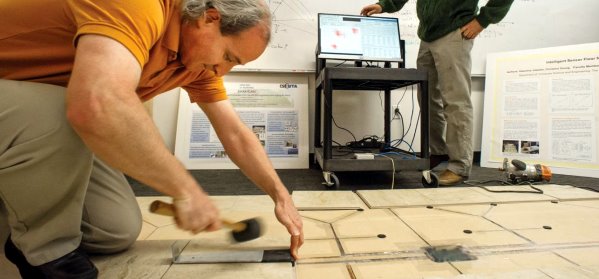
About 3.2 million U.S. households are seniors aged 65 or older, living by themselves. People are living longer, and for a variety of personal, social, financial, and emotional reasons, they want to remain living independently in their own home as long as they can. This leads to a range of challenges for healthcare providers, family members, and care givers who need to track the health of the elderly living on their own, without being intrusive.
Researchers at the University of Texas Arlington have developed a lab to address these issues. A collaboration between the nursing and engineering departments, their “SmartCare” apartment has been set up in a senior living community in Fort Worth, Texas. The home is designed to remotely monitor the occupants without being intrusive. For example, the floor has pressure sensors built into it, which can report data on the residents’ walking gait and balance, and can also detect falls. A mirror tracks skin color, detecting changes in blood composition and melanin in the skin. Smart appliances will report when the refrigerator doors are opened, and when other appliances are used. There is exercise equipment that records activity. Other systems will track factors such as the length and quality of sleep, and adherence to medication schedules.
The goal is to have the living quarters flag potential problems before they become serious conditions that require expensive treatment, and possibly even hospitalization or a move to a care facility. These systems could provide a cost-effective way to monitor elderly living independently, without being intrusive or putting them at greater risk.

